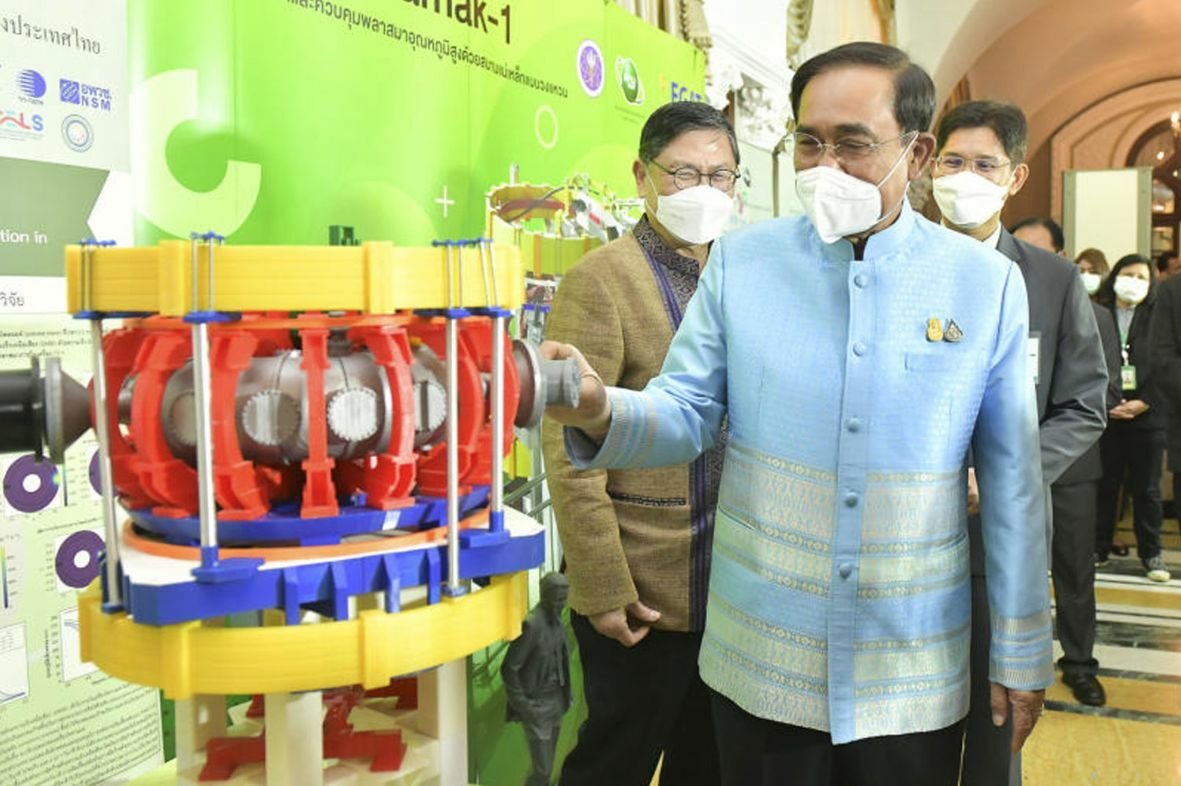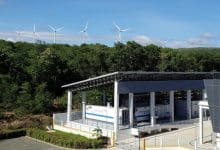Thailand embraces nuclear fusion tech with Tokamak I milestone

Thailand Prime Minister Prayut Chan-o-cha expressed satisfaction with the progress of the country’s Tokamak I (TT-1) nuclear fusion energy technology, stating its significance in achieving sustainable energy goals.
The 69 year old prime minister’s comments came during a presentation on the development of nuclear fusion energy in Thailand, given by Anek Laothamatas, Minister of Higher Education, Science, Research and Innovation (MHESI), and Assoc Prof Thawatchai Onjun, Executive Director of the Thailand Institute of Nuclear Technology (TINT).
Government spokesman Anucha Burapachaisri revealed that the TT-1 is situated in Nakhon Nayok province and was donated by the Institute of Plasma Physics Chinese Academy of Sciences (ASIPP) as a gift to HRH Princess Maha Chakri Sirindhorn. This makes Thailand the first Southeast Asian country to possess a tokamak device.
According to TINT, the TT-1 operates by generating heat from nuclear fusion reactions, similar to those occurring in the Sun. The device can produce heat up to 100,000°C and has the potential to reach a million degrees Celsius in the future.
Anucha Burapachaisri stated that the Tokamak device would contribute to the development of sustainable energy sources in the country and could be applied to various sectors, including industry, agriculture, and medicine.
The Prime Minister expressed his gratitude to all parties involved, such as TINT, Synchrotron Light Research Institute, and Electricity Generating Authority of Thailand for their collaboration in creating a stable energy source and advancing science and technology to enhance the nation’s competitiveness, reported Bangkok Post.
PM Prayut also emphasised the importance of cultivating skilled personnel in fusion technology and strengthening Thailand’s capabilities in science and engineering. He highlighted that the TT-1 serves as an alternative energy source to address climate concerns, as it generates clean, environmentally friendly energy without emitting greenhouse gases.
TINT installed the TT-1 in February and successfully tested the system on April 21, marking a significant milestone in its full operation next month. Over the next decade, TINT intends to construct Thailand’s first in-house device, positioning the country as a hub for fusion technology development, according to Anucha Burapachaisri.
Latest Thailand News
Follow The Thaiger on Google News:


























